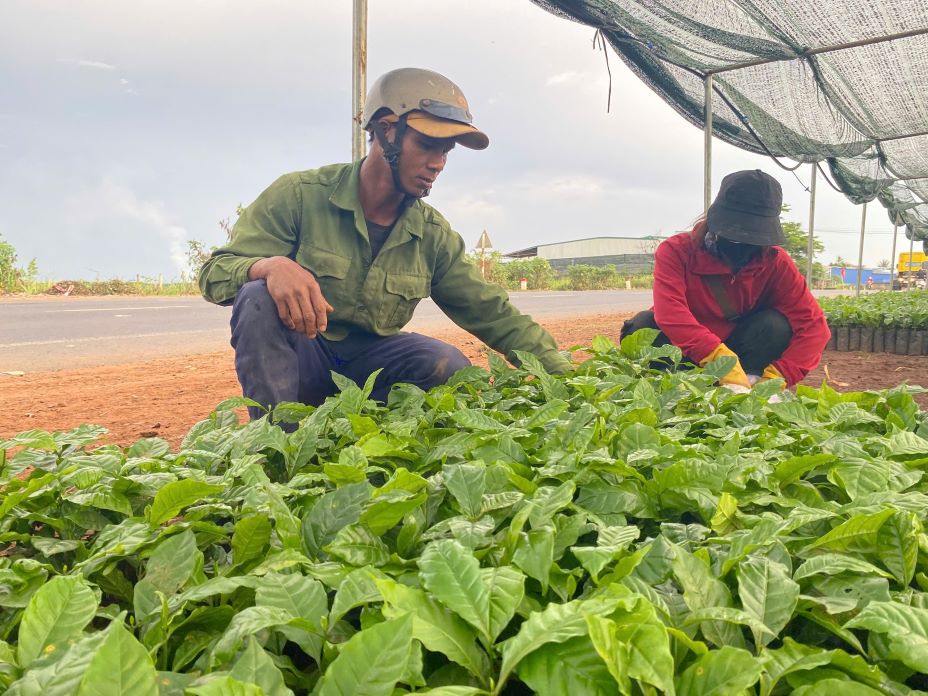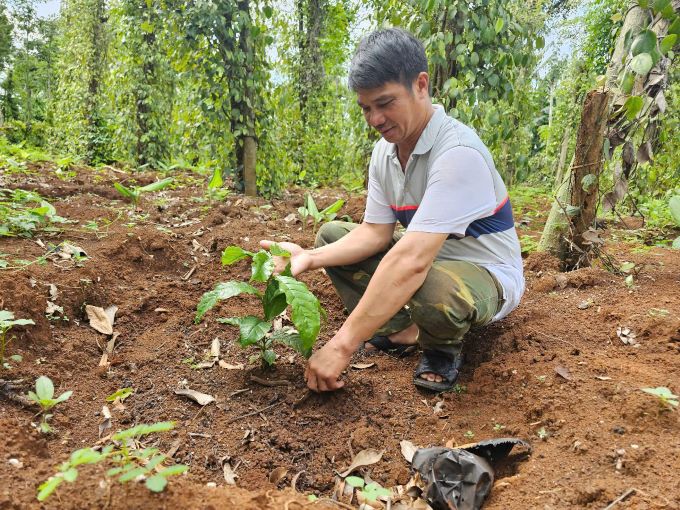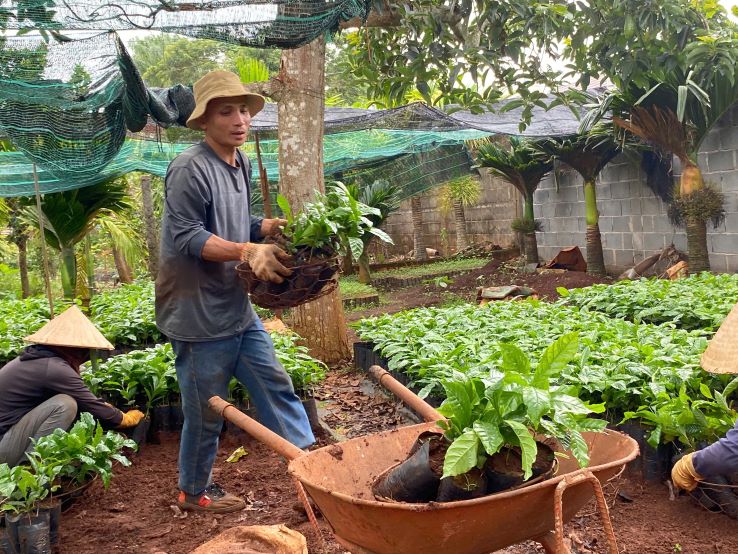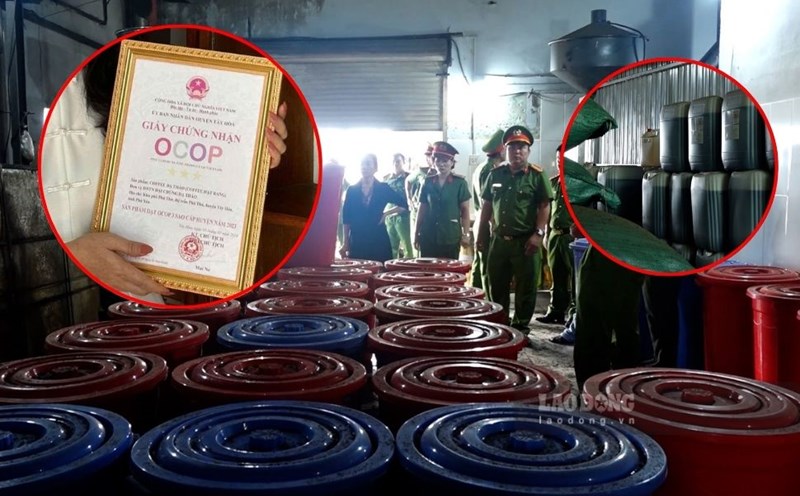Farmers promote replanting
The rainy season in the Central Highlands has arrived, which is also the time when farmers are busy preparing for the sowing crop. This year, many people decided to replant coffee in the hope of improving productivity and responding more effectively to climate change.
Mr. Y Ktia Ksor, a farmer living in Kla village, Krong Buk commune, decided to replant his coffee garden this year.

Mr. Y Ktia Ksor's family has nearly 8 soums of coffee that they have grown for more than 20 years. The garden has become old, leading to a decrease in productivity of about 30-40% in the past 5 years. Therefore, he felt the need to replant the garden to ensure his family's income.
He also added that the increase in coffee prices over the past two years has created momentum for replanting. Currently, he is considering between real-life coffee and green coffee. Because each type has its own advantages and disadvantages.

Mr. Nguyen Van Nam, a farmer in Ea Tieu commune, Cu Kuin district, Dak Lak, also decided to replant a coffee garden of more than 1 hectare.
He has been growing coffee for more than 20 years and has seen a marked decline in productivity due to the attack of pests and diseases.
He said that if not replanted, the coffee garden will no longer be economically efficient. He went to the largest seed market in Buon Ma Thuot (Dak Lak) to buy quality plant varieties at a reputable facility.
In addition to selecting the variety, Mr. Nam also focuses on the soil making stage, an equally important step.
According to him, using soil to make the soil loose and sticky helps the soil to create space for the roots to grow and increase drainage capacity. This also helps kill pests and fungi, minimizing the risk of harm to newly planted plants.
He also actively participates in courses on planting and caring for coffee trees to improve his knowledge.
High reclaiming rate
Mr. Trinh Duc Minh, Chairman of Buon Ma Thuot Coffee Association, said that the rainy season often marks the beginning of coffee replanting.
This year, coffee bean prices have increased, giving farmers more motivation to replant their gardens. The area of replanted coffee in Dak Lak has increased compared to previous years.
According to Mr. Minh, farmers' awareness of replanting has improved significantly. They have not only replanted but have also begun to apply advanced technology.
For example, farmers have applied automatic irrigation systems. This is to reduce drought and respond to climate change.

According to data from the Dak Lak Provincial People's Committee, in the period of 2021-2025, the locality plans to replant coffee with a total area of 24,441.78 hectares.
On average, the annual replanting plan is about 4,800 hectares, and it is expected to reach about 5,136.06 hectares by 2025.
As of 2024, the accumulated replanting results reached 15,467.4 hectares, reaching 63.3% of the plan.
In 2024 alone, the area for replanting will reach 4,712.3 hectares out of a total of 4,995.13 hectares, reaching 94.34% of the plan, marking one of the years with the highest replanting rate in recent years.
Dak Lak is considered the coffee capital of Vietnam with an area of 212,000 hectares, accounting for about 40% of the country's area.











